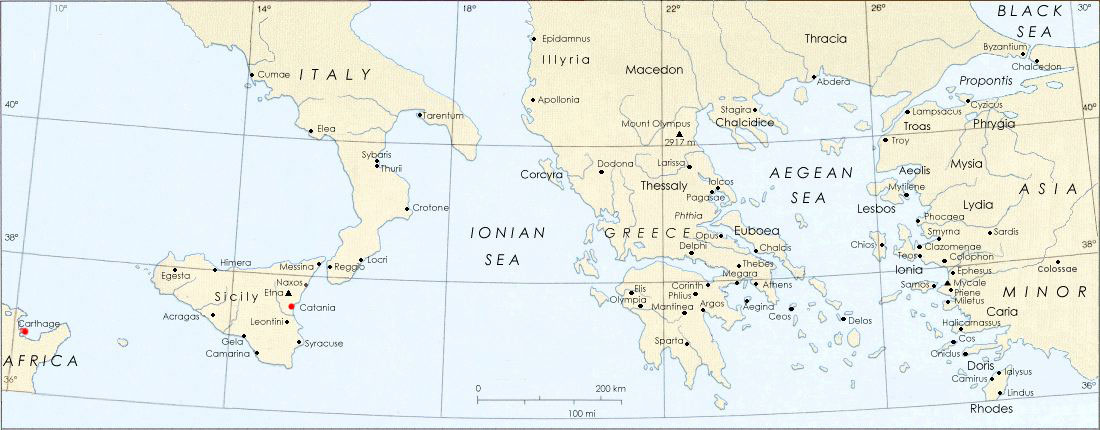
A city of Sicily, on the eastern coast, at the base of Aetna, and a short distance below the river Acis and the Cyclopum Scopuli. It was founded by a colony from Chalcis in Euboea, in B.C. 730, five years after the settlement of Syracuse. Catana, like all the other colonies of Grecian origin, soon became independent of any foreign control, and, in consequence of the fertility of the surrounding country, attained to a considerable degree of prosperity. It does not appear, however, to have been at any time a populous city; and hence Hiero of Syracuse was enabled without difficulty to transfer the inhabitants to Leontini. A new colony of Peloponnesians and Syracusans was established here by him, and the place called Aetna, from its proximity to the mountain.
After the death of Hiero, the new colonists were driven out by the Siculi, and the old inhabitants from Leontini then came, and, recovering possession of the place, changed its name again to Catana. We find Catana after this possessed for a short time by the Athenians, and subsequently falling into the hands of Dionysius of Syracuse. This tyrant, according to Diodorus Siculus (xiv. 15), sold the inhabitants as slaves, and gave the city to his mercenary troops, the Campani, to dwell in. It is probable, however, that he only sold those who were taken with arms in their hands, and that many of the old population remained, since Dionysius afterwards persuaded these same Campani to migrate to the city of Aetna. Catana fell into the power of the Romans during the First Punic War. The modern name is Catania, and the distance from it to the summit of Aetna is given as thirty miles. (Harpers Dictionary of Classical Antiquities, 1898)
